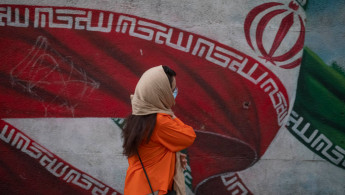New Iran hijab law could constitute 'gender apartheid': UN experts
UN experts have criticised a new law drafted in Iran's parliament that sets out severe punishments, including 10-year imprisonment, for those who do not wear the mandatory hijab.
The bill, titled the 'Bill to Support the Family by Promoting the Culture of Chastity and Hijab', details further punishments including heavy fines, and increases government jurisdiction on businesses, penalising those that serve women without hijabs.
UN experts have stated that the law "could be described as a form of gender apartheid, as authorities appear to be governing through systemic discrimination with the intention of supressing women and girls into total submission".
They added that "the weaponisation of 'public morals' to deny women and girls their freedom of expression is deeply disempowering and will entrench and expand gender discrimination and marginalisation".
Human rights activists in Iran noted that the bill details would increase segregation on university campuses, hospitals, health centres, and at public parks.
The bill, which is expected to come into force in October 2023, comes as Iranian authorities double down on their suppression of internal dissent.
Universities have suspended students and coerced professors into early retirement over their political activity, according to activists.
Likewise, the families of those killed during the anti-government protests that occurred from September 2022 have been harassed by authorities, according to Amnesty International.
This includes the uncle of Mahsa Amini, the woman whose death in custody in September 2022 sparked the anti-government protests. Amini was detained by the morality police over her alleged improper wearing of the hijab.
Over 500 people were killed, with hundreds more wounded and thousands arrested during the protests that occurred after her death.




 Follow the Middle East's top stories in English at The New Arab on Google News
Follow the Middle East's top stories in English at The New Arab on Google News


![A group of Palestinians, foreign and Israeli activists gather to participated in an olive picking event on the land in the town of Battir, which is under threat of confiscation by Israel in Bethlehem, occupied West Bank on 8 November 2024. [Getty]](/sites/default/files/styles/image_330x185/public/2182930803.jpeg?h=199d8c1f&itok=__0LgGsa)